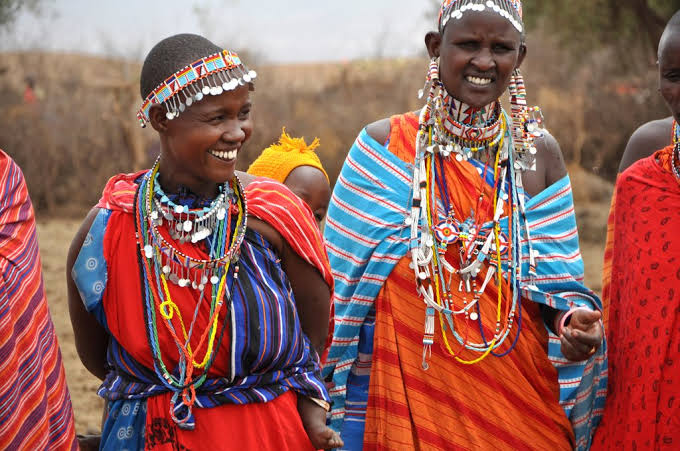TAITA TAVETA, Kenya, Sept 24- Situated along Mombasa- Nairobi highway, Namelock village is predominately inhabited by the Maasai’s; one of the pastoralist communities found in Kenya.
The area is a vulnerable ecosystem and home to abundant wildlife in the Maungu area, Taita Taveta County.
The community largely depends on livestock to get their daily food, but due to the effects of climate change, life has proven to be hard and the very survival of their livestock is hanging in the balance.
A report by the Intergovernmental Panel on Climate Change (IPCC) draws stark conclusions on the state of the world’s climate. It shows that the Earth’s surface temperature will continue to rise in the next three decades and exceed the 1.5-degree centigrade increase threshold in the absence of aggressive cuts in carbon dioxide and other greenhouse gas emissions.
As the world grapples with the effects of climate change, so is the small village in Kenya’s coastal region.
For four decades, experts say Taita Taveta has seen adverse effects of climate change, which has led to prolonged drought.
As a result, there have been long-term environmental effects like soil degradation, reduction of water volumes in rivers, landslides, deforestation, drying of wells and rivers, and increased human-wildlife conflicts.
Miriam Kasumuni, who is a village elder and a widower with 8 children, told Shahidi News that her husband passed away due to high blood pressure complications. A condition which she said, he developed after they lost almost 100 cows, in one period due to drought.
“My husband got high blood pressure when a hundred cows suddenly died because of lack of food. The drought also brought a strange disease which also contributed to the death of the cows,” she said during an interview with Shahidi News.
Its a similar story among many others in her village. Sinyati Kiringoli had more than 10 cows but due to drought, she lost 6.
“We never used to experience this prolonged drought. Most of my neighbours have lost their livestock and are now struggling even with providing food for their children,” she said.
With that in mind, the community has little to depend on so that they can look after their family needs.
Traditionally, women were not allowed to go out and look for a living in the community. But with most of their livestock gone, they have now defied the odds.
It is survival for the fittest, they say, “and we have to adapt and explore other means of livelihood.”
The women started going to the forests to cut down trees for charcoal, which in a way is destroying an already fragile ecosystem, even further.
For years, they would sell charcoal along the Mombasa-Nairobi highway. The little cash they would get would be used to provide food, clothing and pay for school fees, for their children.
One of the villagers, Tonkei Kotina is aware that the illegal logging and charcoal burning has largely contributed to the drought situation that they are now facing.
“We have been experiencing weird changes in our weather patterns. Even in the times when we normally get rain, we don’t receive it anymore,” Kotina said.
The forest cover decline as a result of illegal logging and charcoal burning is also a threat to the wildlife. More and more species are unable to survive as the practice denies the habitat the crucial natural interconnectedness. This also leads to human-wildlife conflicts due to the scarce resource.
According to African Wildlife Foundation Executive Director Maurice Nyaligo, already 98 percent of indigenous trees in Taita Taveta county have been lost to illegal logging and charcoal burning.
He told Shahidi News that there is a need for the community to be sensitized about conserving the environment and empowered by the government and non-governmental organizations so that they can stop cutting down the trees.
-Defying The Odds-
Hadithi handicrafts are one of the non-governmental organizations in Maungu which has come up to support climate change adaptation efforts in the area and the County at large.
This is through empowering the women to do beadwork and also actively helping them to provide income for over 1,700 women from 59 women’s groups- the Maasai women included.
Their artistry has enabled them to earn a decent living as each each woman participating in the project earns at least Sh15,000 per month.
Hadithi acts as a creative and supportive hub for these women’s groups by helping them build their capacity, improve the quality of their products, improve sales through joint marketing efforts and most importantly instill various life skills and an entrepreneurial know-how that have enabled them to have a decent living as they support their families.
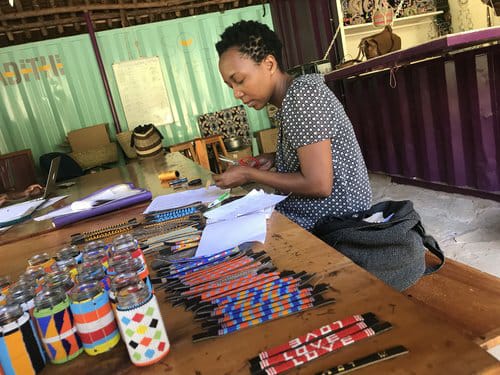
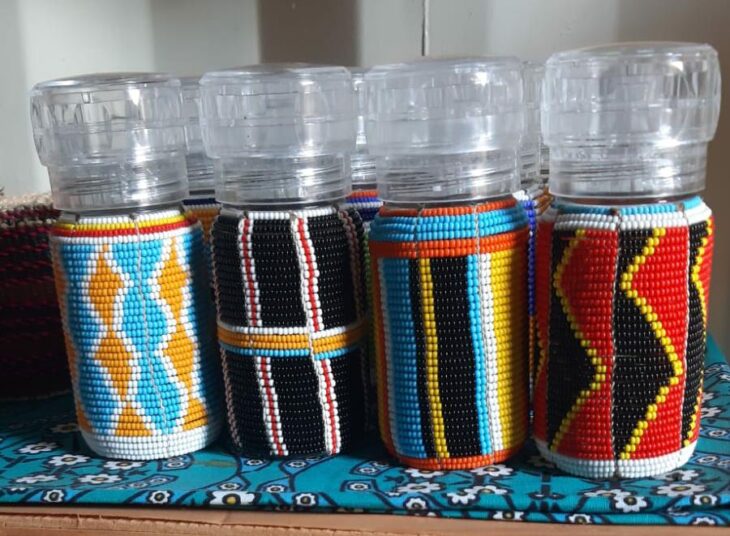
Kate Sau is in charge of the beading projects at Hadithi handicrafts.
Speaking to Shahidi News, she said the project is a solution to preserving the environment and as a result mitigate the effects of climate change in the community.
Sau said they have been providing the women with the required materials to make beads and baskets.
When they are ready, “we buy them from the women, and then they either sell them locally or export them. By doing that, the women get money which helps them look after their families,”
She added that “We normally provide the women with the raw materials they use to make the jewelry. By doing the beadwork, the women are engaged for the whole day and don’t get time to go cut down trees. That alone has helped us to preserve our environment,”
One of the beneficiaries is Miriam Kasumuni, who has been engaged in beadwork for 5 years now. She said the project has changed her way of life.
“I can now provide for my family without difficulties,” the mother of five said.
Kotina, who joined the project after losing her livestock, said the money she gets after selling the jewelry has helped her take her grandchildren to school.
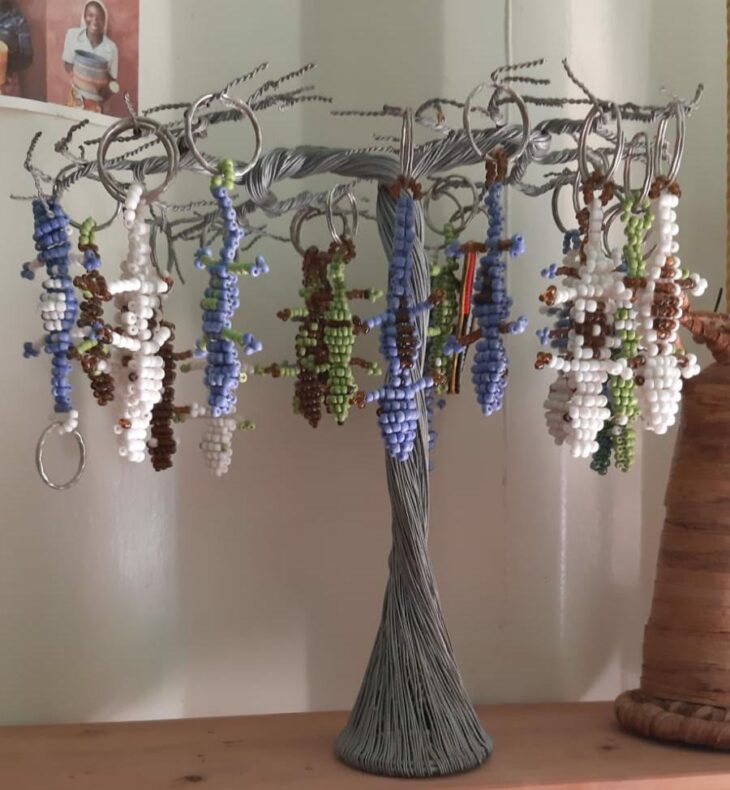
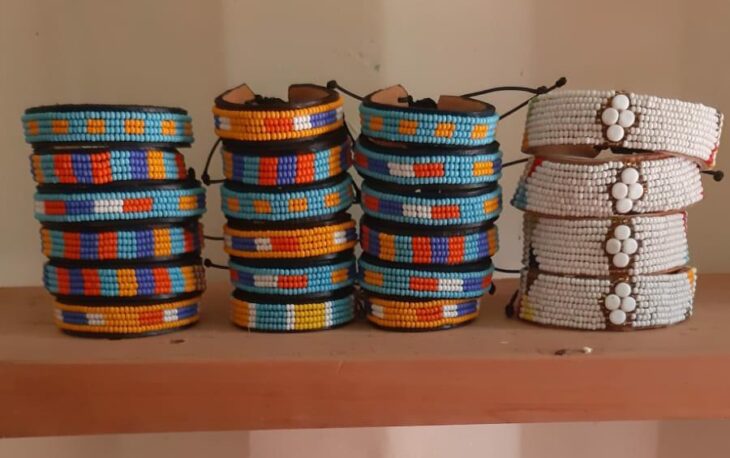
“I joined the women group to make the beads after losing my 20 cows,” she said.
According to Sinyati Kiringoli, the assistant chairperson of the Nasirian women group, which has 21 members, even their husbands have embraced it.
Jacob Kasumuni, one of the men living in the village, agreed that drought has affected their way of life due to the lack of pasture for their livestock.
This, Kasumuni said has seen them change their traditional way of life as women play an active role in supporting their families.
“Because we don’t have enough livestock as we used to have before, we have now allowed our wives to go out and look for money so that they can also help in meeting the family needs,” he said.
According to the United Nations, 80 percent of people who are forced to migrate because of climate change are women. Hence there is a need for all stakeholders to address the issue as an emergency.
Hamisa Zaja, a coordinator at an international organization dealing with environmental matters, pointed out that several social and community activities have been interfered with because of climate change.
With women being the most affected, she urged the government to support projects offered by non-governmental organizations to women who have been affected by climate change.
President Uhuru Kenyatta recently declared drought a national disaster with more than two million Kenyans across the 47 counties at risk of starvation.
“The President has instructed The National Treasury and the Ministry of Interior and Coordination of National Government to spearhead Government efforts to assist affected households including water and relief food distribution as well as livestock uptake,” State House said in a statement.
According to Kenya’s National Drought Management Authority, the number of those affected by the ongoing drought could double to a possible 4 million if rainfall is not experienced in some of the affected areas.
Experts say that climate change mostly affects those who depend mainly on natural resources and whose livelihoods are climate-sensitive—many are poor farming women.
According to a 2015 report by the United Nations Department of Economic and Social Affairs (DESA), about two-thirds of the female workforce in developing countries is involved in agricultural labour, and that number is higher in Africa’s rural areas.
Natural resources are becoming ever scarcer due to climate change, which presents additional challenges for women.
Want to send us a story? Contact Shahidi News Tel: +254115512797 (Mobile & WhatsApp)


